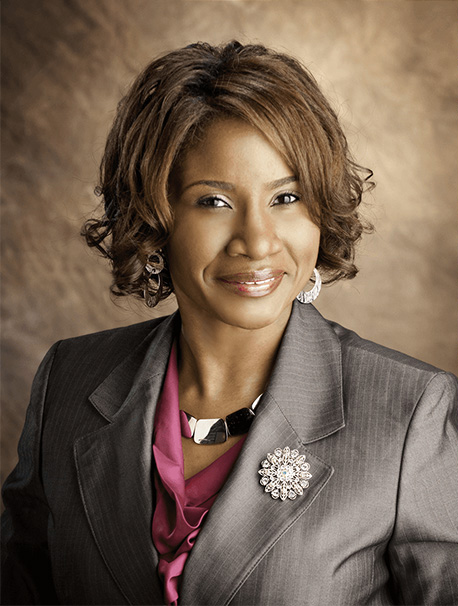Successful nonprofits must maintain a level of transparency with the public, their members, and their supporters so they can continue to focus on accountability rather than profitability. A nonprofit audit committee is one-way organizations can achieve and maintain that transparency.
Benefits Of A Nonprofit Audit Committee
Creating a nonprofit audit committee is the first step in successfully navigating the audit process of any organization. The committee manages oversight of financial reporting requirements, financial statement audits, and disclosures included in the financial statements.
Having a nonprofit audit committee can benefit your organization in the following ways:
Protect The Organization From Fraud
Nonprofit organization leaders, financial staff members, and auditors can work together with the committee to create an action plan to prevent, recognize, and react to fraud. The audit committee oversees the creation and monitoring of company-wide fraud prevention and detection programs. The committee provides detailed directions to handle investigations if fraud is suspected. The committee also works with managers and leaders of the organization to design a complete ethics and compliance program and follow up with review procedures for that program.
Improve Financial Reporting Procedures
Just like the audit committee plays a vital role in fraud prevention matters, they also provide a lot of oversight to board members and financial leadership in regard to internal controls and financial reporting procedures. The committee reviews processes and procedures to provide guidance to finance personnel, paying special attention to the effectiveness and accuracy of the internal and external financial reports.
Increase Credibility
Nonprofit organizations become the target of scrutiny from the public, potential and current board members, donors, governing agencies, and its members. Nonprofits with established committees can publicly disclose the existence of the committee and explain their role in the financial integrity of the organization. Having an audit committee strengthens the credibility of the organization and the reports they are publishing.
Increase Audit Efficiency
Many nonprofit organizations regularly undergo internal and external audits. The purpose of the internal audit team is to review financial processes, procedures, and results and make recommendations for improvements. The nonprofit audit committee works with the internal audit team to improve the nonprofit’s compliance with pre-audit requirements and post-audit recommendations. The committee also works with the CPA firm or governing agency as a liaison so that the auditor can remain independent from the nonprofit’s leadership team.
How To Form An Audit Committee
Forming an audit committee begins with selecting qualified individuals. The members of the committee should be familiar with the nonprofit organization and its stakeholders but should not be a part of the current management team. The ideal audit committee team should be assembled with three to six people, depending on the size of the organization and the level of the financial risk involved. At least one of the individuals selected for the committee should have the financial expertise to understand GAAP compliance and nonprofit financial reporting requirements
Once a strong accounting or finance individual is in place, another two to five members should be selected. The backgrounds of the audit committee team should be diverse, but compatible. Once the team is assembled, a leader, or audit committee chair, should be appointed. The audit committee chair should be an individual that possesses the following:
- Independent thinker
- Leadership qualities
- Strong communication skills
- Problem-solving ability
- Knowledge of nonprofit compliance requirements
- Risk management experience
- Financial reporting exposure
Overall, the audit committee chair will need to be able to lead the committee and coordinate with organization management and accounting professionals.
The Nonprofit Audit Committee’s Role
Once the audit committee is selected, the details about the governance, mission and duties of the committee should be organized into a formal document that can be referenced, reviewed, and updated periodically.
Governance
In order to be effective, the committee will require guidance and governance, which can be documented in a written charter. The charter outlines the goals of the committee as well as details about their scope of responsibilities including:
- The responsibilities of the committee
- How the committee carries out those responsibilities
- How the committee is governed
- Membership requirements
The committee charter should be reviewed and updated annually by the audit committee to reflect process improvement, changes to state and federal regulations, and changes to audit and accounting principles.
Mission
Determining a clear mission is a vital nonprofit audit committee role. The mission is more than a statement about ensuring financial accuracy and compliance and should explain how the committee fits into the organization. The mission should include:
- A statement about the process and integrity of financial reporting
- An intention to help effectively manage risk
- A defined relationship between the committee with the board and third-party accounting firms
- A declaration of independence from the organization
- A policy regarding internal or external complaints
- Compensation policies
Final Thoughts
An effective nonprofit audit committee protects the organization from fraud, improves reporting policies, assists with internal and external audits, and increases transparency and credibility. The audit committee, once assembled, should outline its mission and governance procedures. For more information about starting or reviewing an audit committee, contact JFW Accounting Service for a nonprofit consultation today.

Jo-Anne Williams Barnes, is a Certified Public Accountant (CPA) and Chartered Global Management Accountant (CGMA) holding a Master’s of Science in Accounting (MSA) and a Master’s in Business Administration (MBA). Additionally, she holds a Bachelor of Science (BS) in Accounting from the University of Baltimore and is a seasoned accounting professional with several years of experience in the field of managing financial records for non-profits, small, medium, and large businesses. Jo-Anne is a certified Sage Intacct Accounting and Implementation Specialist, a certified QuickBooks ProAdvisor, an AICPA Not-for-Profit Certificate II holder, and Standard for Excellence Licensed Consultant. Additionally, Jo-Anne is a member of American Institute of Certified Public Accountant (AICPA), Maryland Association of Certified Public Accountants (MACPA), and Greater Washington Society of Certified Public Accountants (GWSCPA) where she continues to keep abreast on the latest industry trends and changes.

